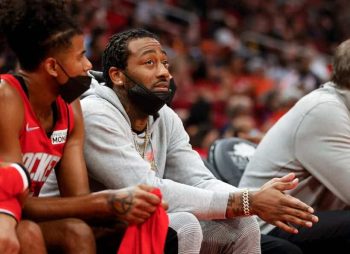NBA
How the Raptors’ Youth Has Saved Their Season

When the NBA playoffs arrive, there is much talk of the need for experience. Older, veteran teams tend to have more success and younger players are sometimes benched in favor of their veteran counterparts. During his tenure as head coach of the Toronto Raptors, Dwane Casey certainly seemed to ascribe to these beliefs.
In a 2013-14 first round series against the Brooklyn Nets, for example, Casey at times opted to play John Salmons and Chuck Hayes instead of Terrence Ross and Jonas Valanciunas, as he had done all season.
But this began to change in during the 2015-16 season. That summer the Raptors drafted two college seniors, Delon Wright in the first round and Norman Powell in the second round. College seniors, unfortunately, come with the negative stigma of being near-finished products with not much upside. They’re often passed over in the draft in favor of younger, less seasoned players.
They seemed to fit the mold for Casey, however. Old enough to not have to be taught the game and young enough to where they could still potentially develop further. Powell first got his chance last season when injuries to the Raptors backcourt forced him into the rotation. Wright has come along a little more slowly, but is now starting to find his stride. And both have been largely instrumental in the Raptors playoff success the past two seasons.
In their first round matchup against the Indiana Pacers a year ago, the Raptors were getting carved up by Paul George. In the first two games of the series, he was averaging 30.5 points on 53.9 percent shooting and 73.4 percent from three. Powell had built a little reputation for himself during the season as a defensive stopper, and with the Raptors in danger of falling to a lower seed, Casey turned to Powell as one of the primary defenders on George. George still got his numbers the rest of the series, but his shooting percentages dipped to 41.4 percent from the field and 32 percent from three. Powell also sparked a Game 5 turnaround in which the Raptors trailed 90-77 heading into the fourth quarter, but won the game. His energy and aggressiveness helped the team overcome the deficit and take control of the series.
This year, the Raptors found themselves in a similar situation with the upstart Milwaukee Bucks. Following the Terrence Ross trade, Powell was given Ross’ minutes in the rotation but didn’t do much with it and by playoff time, Casey had benched him. But after a Game 3 disaster put the Raptors in a 2-1 hole, Casey turned to Powell, who saved the season once again.
Since entering the starting lineup in Game 4, Powell has shot a perfect 9-9 from the beyond the arc. The Raptors had been struggling to hit their outside shots and Powell stepped up to the challenge, providing much needed spacing to open the floor for DeMar DeRozan and Kyle Lowry.
On the defensive end, he completely took Khris Middleton out of the series. Through the first three games, Middleton was averaging 16.7 points on 41 percent shooting, using screens to get free for good looks. Once Powell switched on to him, his scoring dropped to 12.3 points on 38.2 percent shooting.
In the case of Wright, he played a lot more sparingly his rookie year than Powell, and really only got his chance late this year when Lowry went down with a wrist injury. With Cory Joseph in the starting lineup, backup point guard duties went to Wright, who filled in admirably. In the playoffs, his numbers may not jump off the page, but his impact has no doubt helped the Raptors.
Like Powell, Wright does not settle for outside shots. He prefers to attack the defense and as a point guard, he’s constantly looking for his teammates. He only played about eight minutes in Game 2, but he did a much better job than Joseph at keeping the ball moving offensively and he dished out three assists. He also made some big hustle plays that don’t show up on the stat sheet.
With Joseph continuing to struggle against Matthew Dellavedova, Casey gave Wright the primary backup duties in Game 4. Just like before, he didn’t fill up the stat sheet but his impact was clearly felt. His length gave the Bucks bench the same kind of trouble the Raptors were having with the Bucks length. He didn’t score a single point and only had one assist but he kept the offense from stagnating will good ball movement.
In the closeout Game 6, he finally got on the scoreboard with four points on 2-2 shooting, and his play in the second quarter helped the Raptors increase their lead.
Credit should be given to Masai Ujiri for good drafting ability, but also to Casey for his willingness to play and properly develop them. It’s the second year in a row where young guys have essentially saved the Raptors season. If the Raptors want to have any shot at knocking off the Cleveland Cavaliers, you can bet both Powell and Wright will play key roles. And maybe next year, we’ll be talking about how Jakob Poeltl and Pascal Siakam are playoff heroes.













